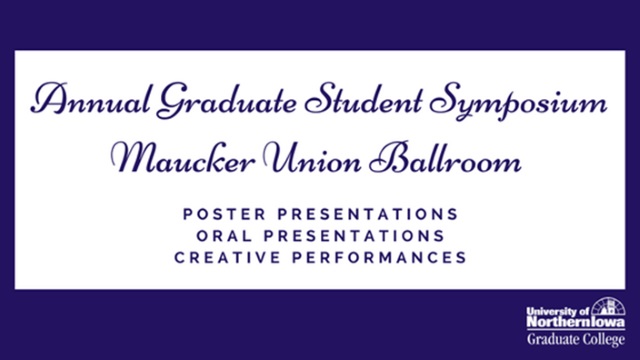
Complete Schedule
"If It Wasn't My Race, It Was Other Things like Being a Woman, or My Disability": A Qualitative Research Synthesis of Students of Color with Disabilities in Education
Award Winner

Recipient of the 12th Annual Graduate Student Symposium Scholarship Award, Oral Presentations, Oak Room - First Place (2019)
To go to the Graduate Student Symposium event page, Click here
Presentation Type
Oral Presentation
Keywords
Children with disabilities--Education; Children of minorities--Education;
Abstract
This Qualitative Research Synthesis (QRS) explores how K-16 students of color make meaning of their disability labels and negotiate the dominant ideologies around race, dis/ability, social class, gender and other forms of difference. Scholars in Disability Studies in Education explore critical connections between Disability Studies and Critical Race Theory (Annamma, Connor, & Ferri, 2013; Erevelles, Kanga & Middleton, 2006). This study identifies such critical connections by synthesizing 13 qualitative studies from 2006-2018 and explored the lived experiences of students of color labeled with disabilities QRS is a methodologically rigorous approach which "uses qualitative methods to analyze, synthesize, and (re)interpret the results from [existing] qualitative studies" (Major & Savin-Baden, 2010, p.10). We employed a resistance theory of disability at the intersections (Gabel & Peters, 2004; Giroux, 1983a, 1983b), that foregrounds the psycho-emotional disablism model of disability (Thomas, 1999), to recognize that students' acts of resistance directly relate to how they are systemically oppressed in schools. Findings from our second order analysis suggest that students identified disability labels as an assigned identity, which limited their educational opportunities and left psychological impacts on their well-being. However, students also used multiple strategies and acts of resistance to negotiate the stereotypical master narratives surrounding their intersectional identities. With the critical need to understand how students engaged in identity work, our synthesis is an initial attempt of its kind to critically synthesize students' identity work at their intersections for theory, research, practice and praxis for a more humane and just educational system for all.
Start Date
3-4-2019 1:00 PM
End Date
3-4-2019 4:00 PM
Year of Award
2019 Award
Faculty Advisor
Dr. Scott Ellison
Faculty Advisor
Dr. David Hernandez-Saca
Department
Department of Curriculum and Instruction
Copyright
©2019 Shehreen Iqtadar
File Format
application/pdf
Embargo Date
4-17-2019
"If It Wasn't My Race, It Was Other Things like Being a Woman, or My Disability": A Qualitative Research Synthesis of Students of Color with Disabilities in Education
This Qualitative Research Synthesis (QRS) explores how K-16 students of color make meaning of their disability labels and negotiate the dominant ideologies around race, dis/ability, social class, gender and other forms of difference. Scholars in Disability Studies in Education explore critical connections between Disability Studies and Critical Race Theory (Annamma, Connor, & Ferri, 2013; Erevelles, Kanga & Middleton, 2006). This study identifies such critical connections by synthesizing 13 qualitative studies from 2006-2018 and explored the lived experiences of students of color labeled with disabilities QRS is a methodologically rigorous approach which "uses qualitative methods to analyze, synthesize, and (re)interpret the results from [existing] qualitative studies" (Major & Savin-Baden, 2010, p.10). We employed a resistance theory of disability at the intersections (Gabel & Peters, 2004; Giroux, 1983a, 1983b), that foregrounds the psycho-emotional disablism model of disability (Thomas, 1999), to recognize that students' acts of resistance directly relate to how they are systemically oppressed in schools. Findings from our second order analysis suggest that students identified disability labels as an assigned identity, which limited their educational opportunities and left psychological impacts on their well-being. However, students also used multiple strategies and acts of resistance to negotiate the stereotypical master narratives surrounding their intersectional identities. With the critical need to understand how students engaged in identity work, our synthesis is an initial attempt of its kind to critically synthesize students' identity work at their intersections for theory, research, practice and praxis for a more humane and just educational system for all.


